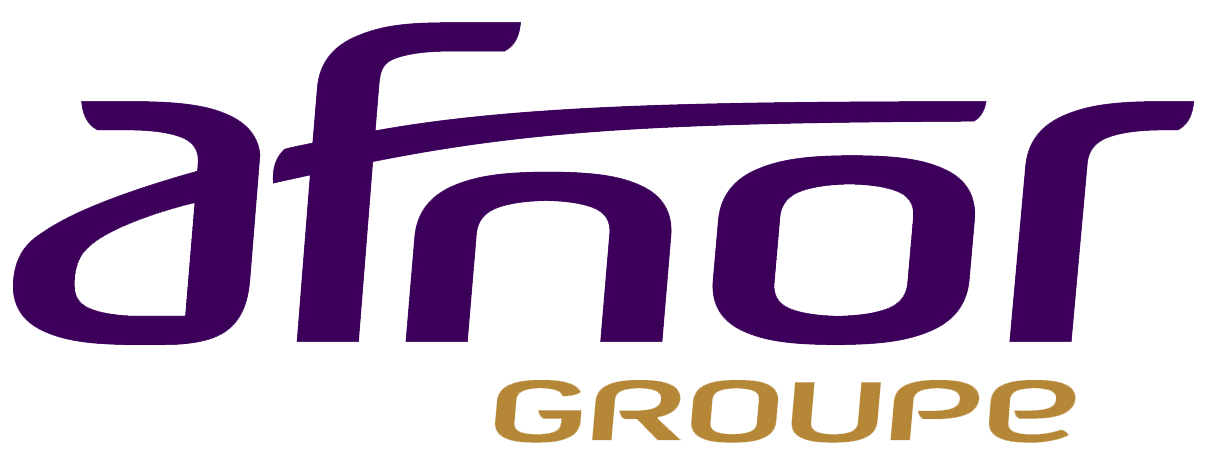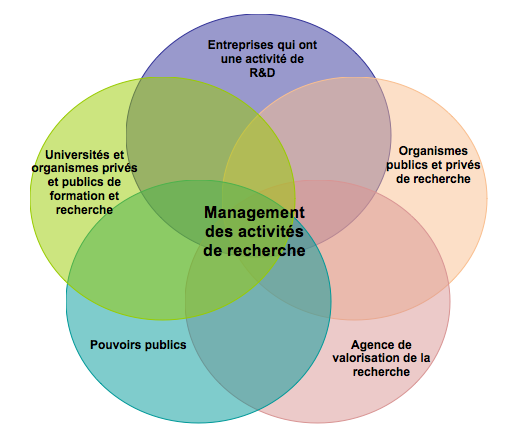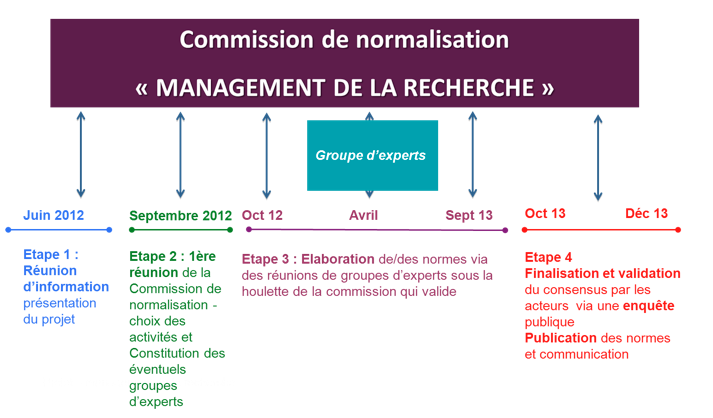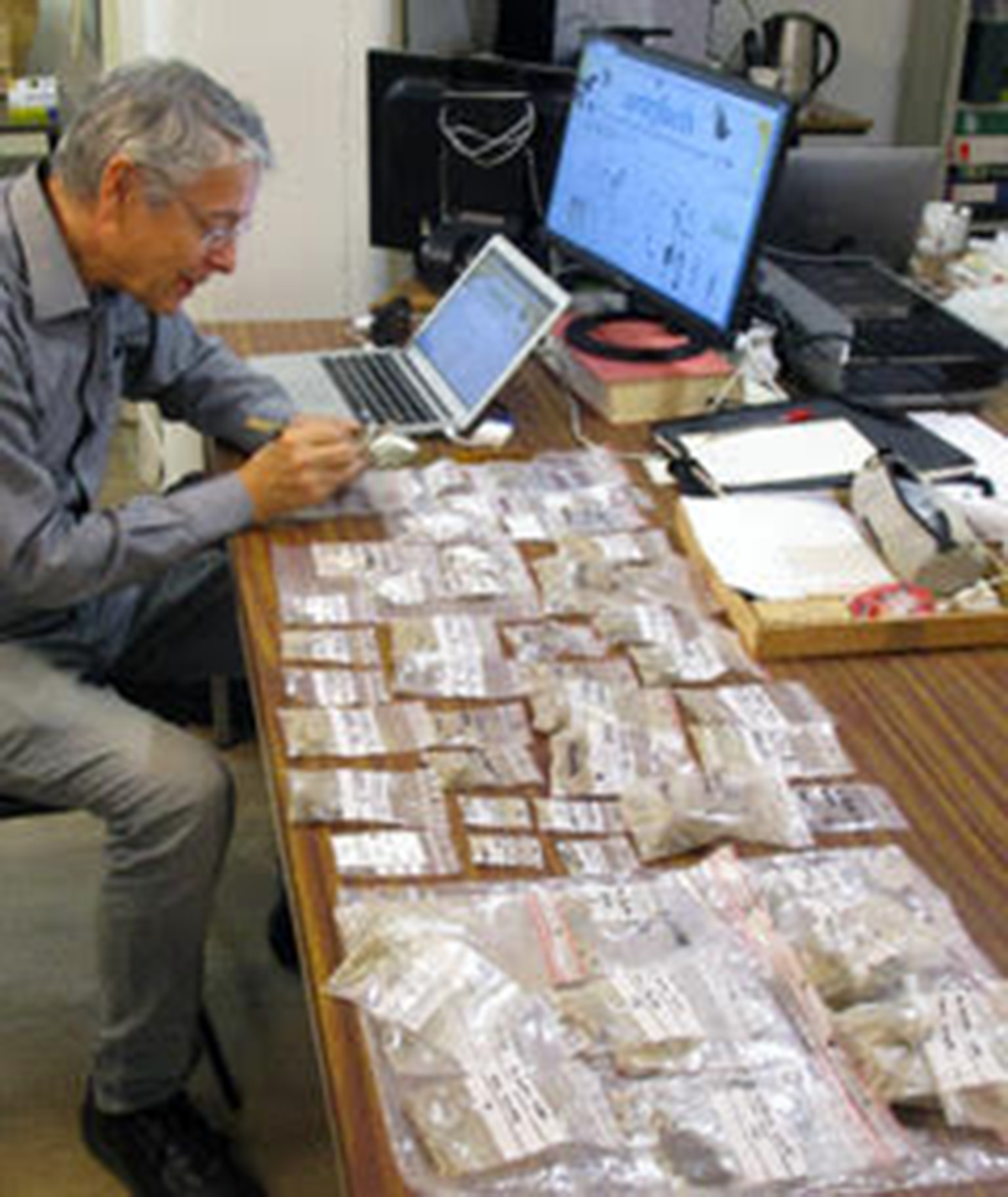Following a 2011 survey of research figures, AFNOR launched the Commission for standardisation AFNOR X580 “Management of research activities” to which ArkéoTopia®, an alternative approach to archaeology came forward to represent the interests of archaeology and social sciences.
The context – Why set up this commission?
Research has a major role to play in nations’ competitiveness and economic performance now more than ever before through the creation of value-added and jobs which it generates by innovation. The world of research has seen evolutions which have brought a dynamic of change to parties involved in it: an evolution of the career of researcher, growth of projects of excellence and multidisciplinary projects, etc. 
These elements lead organisations to try to structure themselves to improve different actions implemented and to adapt to change, but also to better communicate and reinforce collaborations with various public and private organisations.
Standard reference bases have provided the first tools which now need to be adapted to these evolutions:
![]() FD X50-550:2001 – general principles and recommendations
FD X50-550:2001 – general principles and recommendations
![]() FD X50-551:2003 – recommendations for the organisation and realisation of a research activity in project mode, notably within a network
FD X50-551:2003 – recommendations for the organisation and realisation of a research activity in project mode, notably within a network
![]() GA X50-552:2004 – application guide for ISO 9001 in research organisations
GA X50-552:2004 – application guide for ISO 9001 in research organisations
To manage these evolutions, research players surveyed placed themselves in favour of revising the standard research bases in order to continue this process of helping the structure and promotion of research activity management through standardisation.
 This would involve creating a reference document of recommended standards which could be taken to a European level like the CEN Workshop Agreement having the objective of:
This would involve creating a reference document of recommended standards which could be taken to a European level like the CEN Workshop Agreement having the objective of:
![]() benefitting mutually from and optimising research activities to improve their organisation and add value to their results
benefitting mutually from and optimising research activities to improve their organisation and add value to their results
![]() capitalising on the know-how and knowledge of research figures and making them more durable
capitalising on the know-how and knowledge of research figures and making them more durable
![]() defining and promoting the different facets of careers in research.
defining and promoting the different facets of careers in research.
To attain this objective, the commission was divided into 6 sub-groups working across disciplines whose areas of interest are:
GT1 – Social responsibility
GT2 – Piloting research activities
GT3 – Resource management
GT4 – Conduct and carrying out research activities
GT5 – Use and validation of results
GT6 – Evaluation
ArkéoTopia and the working group on social responsibility
ArkéoTopia will direct the commission’s working group on social responsibility. Since the subject links ethics and the researcher’s obligation to society, we will work on the two following general themes:
![]() Scientific ethics on subjects linked to
Scientific ethics on subjects linked to
– respecting contractual engagements (the difference between employee and freelance)
– data integrity
– robustness of measures
– traceability of different research stages
– validity of results
![]() Social ethics of subjects linked to
Social ethics of subjects linked to
– respecting national policies initially on a French level (animal experiments / GMOs / respect of the historical structure of nations, etc.)
– transparency of work depending on obligations (diffusion of results, access to raw data, etc.)
– the relationship between researchers and the wider public (to allow the ordinary citizen to contribute to research, to facilitate understanding of the consequences of research, etc.)
– the relationship between professional researchers and voluntary researchers (recognising everyone’s work, defining everyone’s constraints and advantages, etc.)
By making links with its Arkéthique project about ethics in archaeology, ArkéoTopia plans to contribute to bnoringing forward the relationships within the scientific community between professional researchers, voluntary researchers, research figures, politicians and ordinary people.
In this respect, , we call on researchers in archaeology, history, ethnology, philology, etc. to get together to take this opportunity to be proactive rather than to be subjected to the decisions of deliberations from which they have been excluded. To participate in this working group, contact Jean-Olivier Gransard-Desmond. For the other groups, contact Isabelle Lambert.
Schedule

Contacts
Isabelle LAMBERT – standardisation project manager à l’AFNOR
11, rue Francis de Pressensé 93571 LA PLAINE SAINT DENIS CEDEX
isabelle.lambert@afnor.org – 01 41 62 80 92 – www.afnor.org
Dr. Jean-Olivier GRANSARD-DESMOND – President of ArkéoTopia
06 67 80 48 10 – contact
MdA7-ArkéoTopia 4 rue Amélie 75007 Paris
To find out more…
![]() about AFNOR’s call for contributions, see « Chercheurs, participez à l’élaboration d’un guide sur le management appliqué au domaine de la recherche » (Researchers, participate in the development of a guide for applied management in the field of research) (in French) and download the leaflet calling for contributions (in French).
about AFNOR’s call for contributions, see « Chercheurs, participez à l’élaboration d’un guide sur le management appliqué au domaine de la recherche » (Researchers, participate in the development of a guide for applied management in the field of research) (in French) and download the leaflet calling for contributions (in French).
![]() about interest in a quality approach to research and the frames of reference on a French and European level, see the page Qualité-Recherche de l’Université de Technologie de Compiègne in French), in particular the section référentiels utiles (useful references).
about interest in a quality approach to research and the frames of reference on a French and European level, see the page Qualité-Recherche de l’Université de Technologie de Compiègne in French), in particular the section référentiels utiles (useful references).
![]() about the Arkéthique project, see the statement entitled Ethics and archaeology made at the European Association of Archaeologists in 2011.
about the Arkéthique project, see the statement entitled Ethics and archaeology made at the European Association of Archaeologists in 2011.






